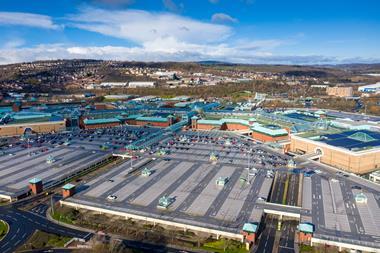Retail landlords are looking nervously to Asia, where measures to contain the spread of coronavirus have hit the retail sector hard.

Retailers and landlords in Singapore and Hong Kong have demanded temporary rent cuts, and many landlords have been accommodating. Some of the region’s biggest landlords including Henderson Land, Link Real Estate Investment Trust, Sun Hung Kai Properties and CapitaLand have reportedly offered to cut February’s rents by up to 60%.
In the UK, where the retail sector is already in crisis, landlords will struggle to be as generous if the government introduces more draconian measures to limit the spread of the virus. While they clearly don’t want to do anything that would send already struggling tenants over the edge, many have lenders breathing down their necks and won’t have much room to manoeuvre.
Will tenants try to wriggle out of leases if landlords don’t slash rents? Lawyers say their options are limited. ‘Force majeure’ clauses are uncommon in leases and resorting to the law of frustration is a long shot (remember the European Medicines Agency’s attempts to argue that Brexit amounted to ‘frustration’).
Insurance policies are unlikely to be much help either, despite the government’s reclassification of coronavirus as a ‘notifiable disease’. Commercial property insurance doesn’t cover the sort of disruption caused by pandemics and although business interruption cover is available, it isn’t commonly bought.
As a result, all eyes were on the government this week to see what help it would offer in the Budget. The temporary suspension of business rates for small retailers is welcome but help is needed for larger retailers as well.
Revo chief executive Ed Cooke says that in a meeting with government next week he will be pushing for more radical steps. Meanwhile, new retail trade body AIR has launched an action plan to combat the drop-off in Chinese shoppers. But there is more pain to come and retail isn’t the only sector that could feel the strain. Hotels, student accommodation and flexible offices all look vulnerable if the situation deteriorates.
The threat to the rest of the real estate industry is less immediate, but no less troubling. Coronavirus could well tip the global economy into recession, something that governments and central banks are eager to avoid by throwing money at the problem. The Bank of England’s decision to slash interest rates this week is a sign of things to come. But injecting yet more debt into the financial system could cause problems. For one, it could lead to currency depreciation and inflation.
There are other dangers too. Unsurprisingly, Italian government bond yields have jumped in recent weeks and could well rise further, putting pressure on the country’s banks because of their high exposure to Italian government debt – a dynamic that economists dub ‘the doom loop’.
Governments are right to be doing everything they can to hold back coronavirus, but in doing so they could well end up sowing the seeds of a recession that will cause as much social harm as the virus itself. It looks like a case of damned if they do, damned if they don’t.





























No comments yet